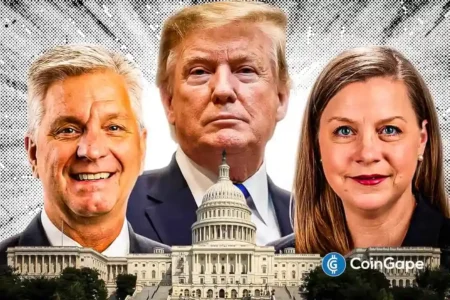Legal Clarity for XRP: Ripple Lawyer Bill Morgan Sets the Record Straight
In the evolving landscape of cryptocurrency regulation, debates around the legal status of XRP have intensified, particularly among proponents of Bitcoin. There have been ongoing assertions that the absence of a formal classification for XRP creates a hazy legal framework. However, Ripple lawyer Bill Morgan has openly challenged this notion, arguing that the lack of classification does not equate to legal ambiguity. His insights provide a clearer perspective on XRP’s standing and the regulatory environment.
Dismissing Misconceptions on Legal Classification
For years, Bitcoin has been recognized as a "commodity" by both the U.S. Securities and Exchange Commission (SEC) and the Commodity Futures Trading Commission (CFTC). In contrast, XRP’s status has fluctuated, particularly during the ongoing SEC lawsuit that has spanned over four years. Recently, a pivotal ruling by Judge Torres deemed that while retail sales of XRP do not constitute investment contracts, institutional sales do qualify as such. In this context, Morgan contends that assumptions made by Bitcoin proponents lack foundational legitimacy, emphasizing that classification itself lacks a universal definition.
Courts Focus on Legal Issues, Not Classification
Morgan argues that courts do not classify entities arbitrarily; they address specific legal challenges brought before them. In the landmark Ripple case, Judge Torres mainly assessed whether Ripple’s XRP sales amounted to investment contracts rather than determining whether XRP falls under the categories of commodities or securities. This critical distinction highlights that XRP’s legal status is being clarified incrementally through court proceedings, rather than being anchored in classification.
The Need for Clear Regulations
Recently, Ripple’s Chief Legal Officer, Stuart Alderoty, expressed optimism regarding the passage of the Digital Asset Market Clarity Act, which aims to establish clearer regulations for cryptocurrencies in the United States. Alderoty’s assertion that "Clarity shouldn’t be controversial" underlines the pressing need for comprehensive regulatory frameworks that can ease investor anxieties. A well-defined regulatory landscape is equally beneficial for both cryptocurrency firms and consumers.
Bill Morgan’s Take on XRP’s Legal Clarity
Morgan has affirmed that the court’s ruling provides substantial legal clarity concerning XRP. He points out that the judgment made by Judge Torres—stating that XRP is not classified as a security—provides the necessary assurance for stakeholders. Interestingly, Morgan also mentions that many legal concepts, including "property," are not strictly defined. For instance, in Australia, Bitcoin is currently classified as "property," demonstrating that classifications can evolve without diminishing legal clarity.
What XRP Is and Isn’t
Bill Morgan further posits that while the specific classification of XRP may remain uncertain, one clear takeaway from the court’s ruling is that XRP is definitively not a security. He articulates that this understanding gives stakeholders a measure of legal clarity, allowing them to navigate the cryptocurrency landscape with greater confidence. In an attempt to foster goodwill among communities within the cryptocurrency ecosystem, Ripple co-founder Brad Garlinghouse symbolically donated the ‘Skull of Satoshi‘ to the Bitcoin community, promoting unity amid discourse.
Conclusion: A Call for Understanding in the Crypto Community
As the conversation surrounding the legal status of digital assets like XRP continues, it is crucial for communities within the cryptocurrency sphere to engage in constructive dialogue. Bill Morgan’s observations illuminate the complexities surrounding legal classification while underscoring the necessity for clarity in regulations. Establishing a comprehensive framework will not only benefit individual cryptocurrencies but also bolster market stability. By moving away from divisive narratives, such as that perpetuated by Bitcoin maximalists, the crypto community can unite in its efforts to promote a regulated and thriving digital economy.
In a world where the future of finance is being redefined by blockchain technology and digital currencies, fostering understanding and clarity will be key in navigating this uncertain landscape.
















